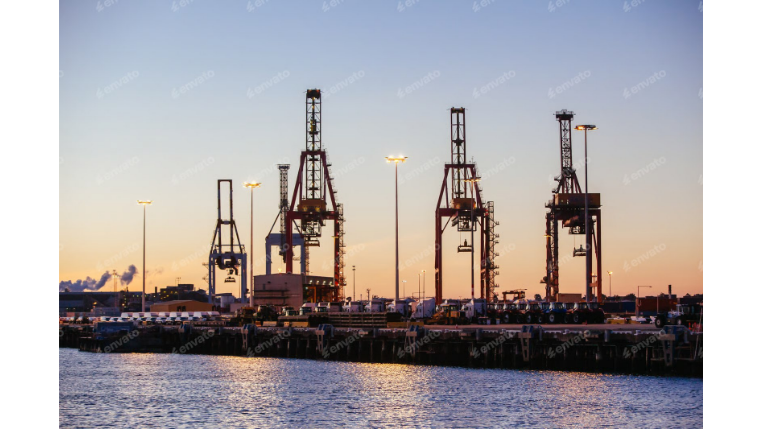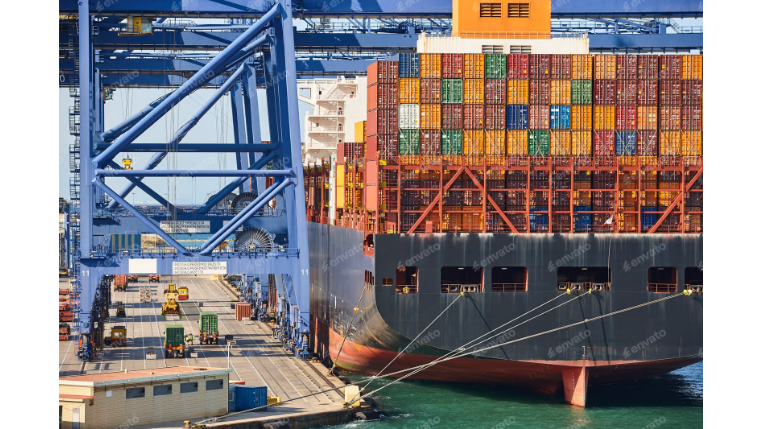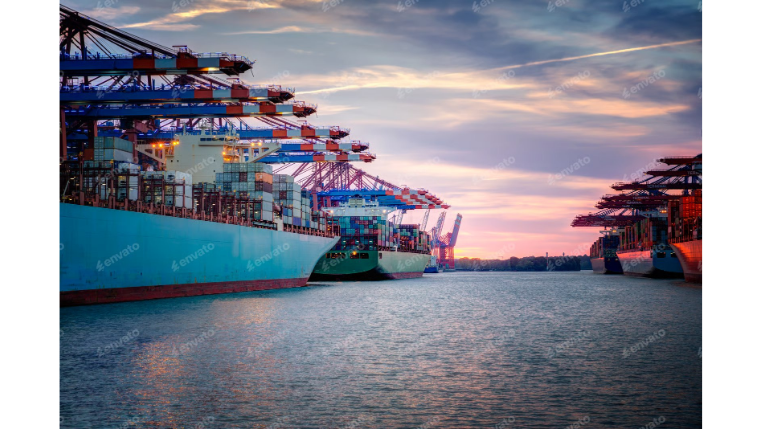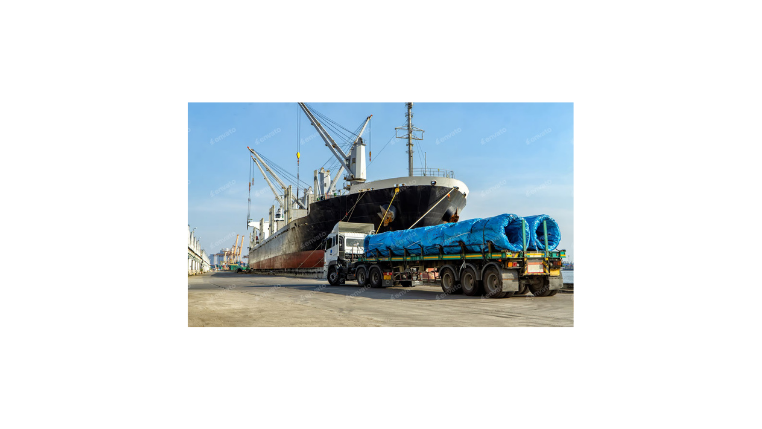Incoterms 2025: An In-Depth Guide to Meaning Chart & List
In international trade, it is crucial to have a clear understanding of the terms and conditions that govern the sale and transportation of goods. This is where Incoterms come into play. Incoterms, short for International Commercial Terms, are a set of standardized rules created by the International Chamber of Commerce (ICC) to facilitate global trade transactions. These terms define the responsibilities of buyers and sellers in terms of delivery, insurance, customs clearance, and other related aspects.
What Are Incoterms?
Incoterms are a set of three-letter trade terms that define the obligations, risks, and costs associated with the delivery of goods from the seller to the buyer. They provide a common language and framework for international trade, ensuring that all parties involved have a clear understanding of their responsibilities and rights.
The latest version of Incoterms is Incoterms 2020, which replaced the previous version, Incoterms 2010. However, in this article, we will be focusing on the upcoming Incoterms 2025, which are still under development and expected to be released in the near future.
The Importance of Incoterms
Incoterms play a vital role in international trade by providing a standardized set of rules that govern the rights and obligations of buyers and sellers. Here are some key reasons why Incoterms are important:
- Clarity and Common Understanding: Incoterms provide a clear and concise framework for international trade transactions. By using standardized terms, all parties involved can have a common understanding of their roles and responsibilities.
- Risk Allocation: Incoterms define which party is responsible for the risk and cost of transportation, insurance, customs clearance, and other related activities. This helps to avoid disputes and ensures that each party knows their obligations.
- Legal Certainty: By using internationally recognized terms, Incoterms provide legal certainty and help to minimize the risk of misunderstandings and disputes between buyers and sellers.
The Evolution of Incoterms
Incoterms have evolved over time to reflect changes in the global trade landscape and to address the needs of international traders. The first set of Incoterms was introduced in 1936, and since then, there have been several revisions and updates to keep up with the changing business environment.
The most recent update, Incoterms 2020, introduced some significant changes to the terms and conditions of international trade. It clarified certain terms, added new rules, and removed some outdated ones. These changes aimed to make Incoterms more user-friendly and adaptable to modern trade practices.
What to Expect in Incoterms 2024
Incoterms 2024 is the next iteration of Incoterms, currently under development by the International Chamber of Commerce. While the details of Incoterms 2024 are not yet available, we can make some predictions based on the past revisions and industry trends.
It is expected that Incoterms 2024 will continue to address the challenges and complexities of international trade, taking into account emerging technologies, environmental concerns, and changes in global supply chains. The new rules may provide more clarity on the use of digital documentation, incorporate sustainability and environmental considerations, and address issues related to e-commerce and cross-border trade.
The Incoterms Chart: Understanding the Different Terms
To better understand the different Incoterms, let's take a closer look at the Incoterms chart. The chart provides a quick reference guide to the various terms and their respective obligations, risks, and costs.
EXW: Ex Works
FCA: Free Carrier
CPT: Carriage Paid To
CIP: Carriage and Insurance Paid To
DAP: Delivered at Place
DPU: Delivered at Place Unloaded
DDP: Delivered Duty Paid
FAS: Free Alongside Ship
FOB: Free on Board
CFR: Cost and Freight
CIF: Cost, Insurance, and Freight
Each Incoterm represents a different set of obligations for the buyer and seller. It is essential to understand the specific responsibilities associated with each term to ensure a smooth and efficient trade transaction.
Key Considerations When Choosing an Incoterm
When selecting an Incoterm for a trade transaction, several factors should be taken into consideration. Here are some key considerations to keep in mind:
- Mode of Transportation: The chosen Incoterm should be suitable for the mode of transportation used for shipping the goods. Some terms are more suitable for sea freight, while others are more applicable to air or land transportation.
- Risk Allocation: Consider the risk and cost allocation between the buyer and seller. Some terms place more responsibility on the seller, while others transfer more risk and cost to the buyer.
- Insurance Coverage: Determine the level of insurance coverage required for the goods during transportation. Some terms include insurance, while others require the buyer or seller to arrange insurance separately.
- Customs Clearance: Consider the obligations and responsibilities related to customs clearance and import/export documentation. Some terms require the seller to handle customs procedures, while others place the responsibility on the buyer.
- Common Incoterms Misconceptions
Despite the efforts to standardize and simplify international trade, there are still some misconceptions and misunderstandings surrounding Incoterms. Here are some common misconceptions:
- Incoterms Determine Ownership: Incoterms do not determine the ownership of goods; they only define the responsibilities and obligations of the buyer and seller regarding the delivery and transportation of goods.
- Incoterms Cover All Aspects of a Trade Transaction: Incoterms primarily focus on the delivery of goods and transportation-related obligations. They do not cover other aspects such as payment terms, intellectual property rights, or contractual terms and conditions.
- Incoterms Are Universal: While Incoterms are widely recognized and used in international trade, they are not universally applicable. The choice of Incoterm depends on the specific trade transaction, the parties involved, and the applicable laws and regulations.
How to Use Incoterms Effectively
To use Incoterms effectively in international trade, it is essential to follow these best practices:
- Understand the Terms: Familiarize yourself with the different Incoterms and their respective obligations, risks, and costs. This will help you choose the most appropriate term for your trade transaction.
- Review Contracts Carefully: Ensure that your contracts clearly specify the chosen Incoterm and its associated obligations. This will help to avoid misunderstandings and disputes in the future.
- Communicate with Trade Partners: Maintain open and clear communication with your trade partners regarding the chosen Incoterm, responsibilities, and any specific requirements or expectations.
- Seek Legal Advice: When in doubt or dealing with complex trade transactions, seek legal advice to ensure compliance with applicable laws and regulations.
EXW - Ex Works
The Ex Works (EXW) Incoterm places the maximum responsibility on the buyer. Under EXW, the seller's obligation is to make the goods available at their premises, such as a factory or warehouse. The buyer assumes all costs and risks from that point forward, including transportation, export/import clearance, and insurance.
FCA - Free Carrier
The Free Carrier (FCA) Incoterm requires the seller to deliver the goods to a carrier named by the buyer at a specified location, such as a terminal or warehouse. The risk transfers to the buyer once the goods are handed over to the carrier. The seller is responsible for export clearance, while the buyer assumes responsibility for transportation, import clearance, and insurance.
CPT - Carriage Paid To
The Carriage Paid To (CPT) Incoterm involves the seller arranging and paying for the transportation of goods to a named destination. The risk transfers to the buyer once the goods are delivered to the agreed-upon destination. The seller is responsible for export clearance, while the buyer assumes responsibility for import clearance and insurance.
CIP - Carriage and Insurance Paid To
Similar to CPT, the Carriage and Insurance Paid To (CIP) Incoterm requires the seller to arrange and pay for transportation to a named destination. Additionally, the seller must also arrange and pay for insurance coverage in case of loss or damage to the goods during transit. The risk transfers to the buyer upon delivery, and the buyer assumes responsibility for import clearance.
DAP - Delivered at Place
Under the Delivered at Place (DAP) Incoterm, the seller is responsible for arranging the entire shipment and delivering the goods to a named place agreed upon by both parties. The risk transfers to the buyer upon delivery. While the seller is responsible for clearing goods for export, the buyer assumes responsibility for import customs duties, fees, and taxes.
DPU - Delivered at Place Unloaded
The Delivered at Place Unloaded (DPU) Incoterm requires the seller to arrange the shipment and deliver the goods to a named place. Additionally, the seller is responsible for unloading the goods. The risk transfers to the buyer once the goods are unloaded. The buyer assumes responsibility for import clearance and other associated costs.
DDP - Delivered Duty Paid
The Delivered Duty Paid (DDP) Incoterm places the maximum responsibility on the seller. The seller is responsible for the entire shipment, including customs clearance and fees, and delivering the goods to the buyer's premises. This Incoterm relieves the buyer from any further obligations once the goods are delivered.
FAS - Free Alongside Ship
The Free Alongside Ship (FAS) Incoterm requires the seller to deliver the goods to a named port of shipment and place them alongside the ship. The risk transfers to the buyer when the goods are placed alongside the ship. The buyer assumes responsibility for the main leg of transit and every other step in the delivery process.
FOB - Free On Board
The Free On Board (FOB) Incoterm places the responsibility for packaging, pickup, and delivery of goods onto a vessel at the port of shipment on the seller. The liability transfers to the buyer once the goods are on board the vessel. The buyer assumes responsibility for every other step of the journey.
Also read:
CFR - Cost and Freight
The Cost and Freight (CFR) Incoterm requires the seller to arrange and pay for transportation to the port of origin and for loading the goods onto the vessel. The seller is also responsible for transportation to the destination port, but they are not liable for that portion of the journey. The risk transfers to the buyer when the goods are boarded at the origin port.
CIF - Cost, Insurance, and Freight
Similar to CFR, the Cost, Insurance, and Freight (CIF) Incoterm involves the seller arranging and paying for transportation to the port of destination. However, with CIF, the seller must also arrange and pay for insurance coverage for the goods during transit. The risk transfers to the buyer upon boarding at the origin port.
Incoterms 2024 for Different Modes of Transport
Incoterms 2024 can be used for various modes of transport, including sea, air, road, or rail. However, not all Incoterms are suitable for every mode. Let's explore the Incoterms that can be used for different modes of transport:
Incoterms for Any Mode of Transport
The following Incoterms can be used for both ocean and air shipping:
EXW - Ex Works
FCA - Free Carrier
CPT - Carriage Paid To
CIP - Carriage and Insurance Paid To
DAP - Delivered at Place
DPU - Delivered at Place Unloaded
DDP - Delivered Duty Paid
Incoterms for Sea and Inland Waterway Transport
These Incoterms are specifically designed for sea and inland waterway shipments:
FAS - Free Alongside Ship
FOB - Free On Board
CFR - Cost and Freight
CIF - Cost, Insurance, and Freight
Incoterms 2024 vs. 2010: Key Differences
Incoterms 2024 introduces several changes and updates compared to the previous version, Incoterms 2010. Here are some key differences between Incoterms 2024 and Incoterms 2010:
Introduction of DPU
Incoterms 2024 introduces the Delivered at Place Unloaded (DPU) Incoterm, replacing the Delivered at Terminal (DAT) Incoterm from Incoterms 2010. DPU allows for delivery at a specific place, providing more flexibility compared to the previous version.
Insurance in CIP and CIF
In Incoterms 2024, it is explicitly stated that the seller is responsible for obtaining insurance coverage with minimum coverage in Carriage and Insurance Paid To (CIP) and Cost, Insurance, and Freight (CIF) Incoterms. This clarification aims to ensure better understanding and compliance with insurance requirements.
Different Levels of Security Obligations
Incoterms 2024 includes more detailed security-related obligations to address the increased security concerns in international trade. These additional obligations aim to enhance the safety and integrity of goods during transportation.
Bill of Lading with FCA
Incoterms 2024 allows the use of the Free Carrier (FCA) Incoterm in conjunction with a bill of lading. This change provides more flexibility for multimodal transport and aligns with practical trade practices.
Incoterms for Air Freight
While Incoterms are primarily designed for sea and multimodal transport, they can also be adapted for air freight transactions. However, some Incoterms are more commonly used in air shipments due to their suitability for air transport requirements:
EXW - Ex Works
CPT - Carriage Paid To
CIP - Carriage and Insurance Paid To
DAP - Delivered at Place
DDP - Delivered Duty Paid
By utilizing these Incoterms, buyers and sellers can effectively define their responsibilities and ensure smooth air freight operations.
Choosing the Right Incoterm
Selecting the appropriate Incoterm for your international trade transactions is crucial for successful and efficient operations. Here are some common Incoterms and when you might choose them
FOB - Free On Board
FOB is a widely used Incoterm for sea freight shipments. It transfers the risk and responsibility to the buyer when the goods are loaded "on board" the shipping vessel. FOB gives the buyer greater control over the shipping process, allowing them to choose their own forwarder and negotiate favorable terms.
EXW - Ex Works
EXW places the responsibility on the buyer to arrange and pay for transportation from the seller's premises. This Incoterm gives the buyer full control over freight costs but also requires them to handle all logistics and customs clearance. It is suitable for experienced shippers who have the resources and knowledge to manage the entire shipping process.
FCA - Free Carrier
FCA is a versatile Incoterm that can be used for all shipping modes. With FCA, the seller is responsible for packaging and transport at the origin, while the buyer assumes responsibility and costs once the goods are loaded onto a mode of transportation or delivered to a specific location agreed upon by both parties.
DAP - Delivered at Place
DAP is an Incoterm that allows the seller to handle the entire shipment, including transport and delivery to a named place. The buyer assumes responsibility upon delivery, including import customs duties, fees, and taxes. DAP is suitable for buyers who prefer a hassle-free shipping experience while still maintaining control over import-related costs.
FAS - Free Alongside Ship
FAS is an Incoterm commonly used for sea shipments. Under FAS, the seller is responsible for delivering the goods to the port of shipment and placing them alongside the ship. The buyer assumes responsibility for the main leg of transit and all subsequent delivery steps. FAS is suitable for buyers who want more control over the shipping process.
Main Differences Specific to a Country
While Incoterms provide a standardized framework for international trade, it is essential to consider specific country requirements and procedures. Customs procedures, paperwork, and regulations may vary from country to country, affecting the choice of Incoterm. For example:
Customs procedures may differ at porous borders, such as within the EU.
Different countries may have specific requirements for imports and exports, such as the need for a Deferment Account in the UK or withholding tax in India.
Conclusion
Incoterms are an integral part of international trade, providing a standardized framework for the rights and obligations of buyers and sellers. By understanding and effectively using Incoterms, businesses can navigate the complexities of global trade and ensure smooth and efficient transactions.
As Incoterms continue to evolve, with the upcoming release of Incoterms 2024, it is crucial for traders to stay informed and adapt to the changing trade landscape. By staying up-to-date with the latest Incoterms and best practices, businesses can enhance their competitiveness and mitigate risks in the international marketplace.
Remember, when engaging in international trade, always consult legal and trade experts to ensure compliance with applicable laws and regulations.










